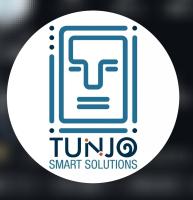

Leading zero hunger through Data
Tunjo Solutions
Urban Farmers ph, Velvet Greens, BPT Colombia
The objective of this commitment is to harness advanced technologies, including Analytics, Artificial Intelligence (AI), and the Internet of Things (IoT), to address the alimentary crisis posed by climate change and environmental degradation. By integrating real-time data collection and analysis, my commitment is to optimize agricultural productivity and enhance supply chain efficiency while minimizing carbon emissions. IoT-enabled sensors will provide continuous monitoring of crop and environmental conditions, while AI-driven analytics will predict and manage demand, ensuring resources are allocated effectively and waste is minimized. We wish and will support sustainable farming practices, bolstering ecosystem management, while promoting low-carbon logistics, contributing to a resilient, data-informed food system that mitigates the impacts of climate change on global food security.
Climate change and environmental degradation pose significant risks to global food security. These issues disrupt ecological balance, leading to biodiversity loss, reduced soil fertility, and unpredictable weather patterns that weaken agricultural productivity. Compounding this, food distribution systems face mounting challenges due to carbon footprint reduction targets, complicating logistics and impacting supply chain sustainability. The combined effect threatens to trigger an alimentary crisis, with severe implications for vulnerable communities. Addressing these unrefined challenges demands urgent, coordinated action that prioritizes sustainable agricultural practices, strengthens ecosystem management, and incorporates low-carbón logistics. Springs must aim to preserve the environment while ensuring efficient food production and distribution
As a summary, we plan to (1) deploy IoT sensors for real-time monitoring of crops and environmental conditions, and (2) Implement AI models for data analysis to optimize resource use and forecast demand.
Our strategy is to utilize data-driven decision-making for efficient resource management, by integrating sustainable, low-carbon practices into farming and logistics.
By doing so, we expected to enhance agricultural productivity and reduce waste through precision farming, also to
improve food security conditions and lower carbon emissions, contributing to ecological balance.
Evaluation of SDGs is a challenging task that we plan to tackle by using Analytics in the shape of periodic reports, a comprehensive scorecard, and relevant KPIs. IoT sensors and AI-driven analytics will continuously collect and assess data on crop health, mapping the improvement, and Data collected from industry partnerships will enable the measurement of resource utilization, and supply chain efficiency. Metrics such as productivity gains, water and energy savings, and carbon footprint reductions will be estimated, tracked and reported quarterly. Evaluation will include stakeholder feedback and impact assessments to ensure alignment with sustainability goals. We intend that the outcomes and insights may be presented at future editions of the UN World Data Forum (UNWDF), showcasing technological advancements and data-driven strategies in addressing food security and climate resilience on a global scale.
